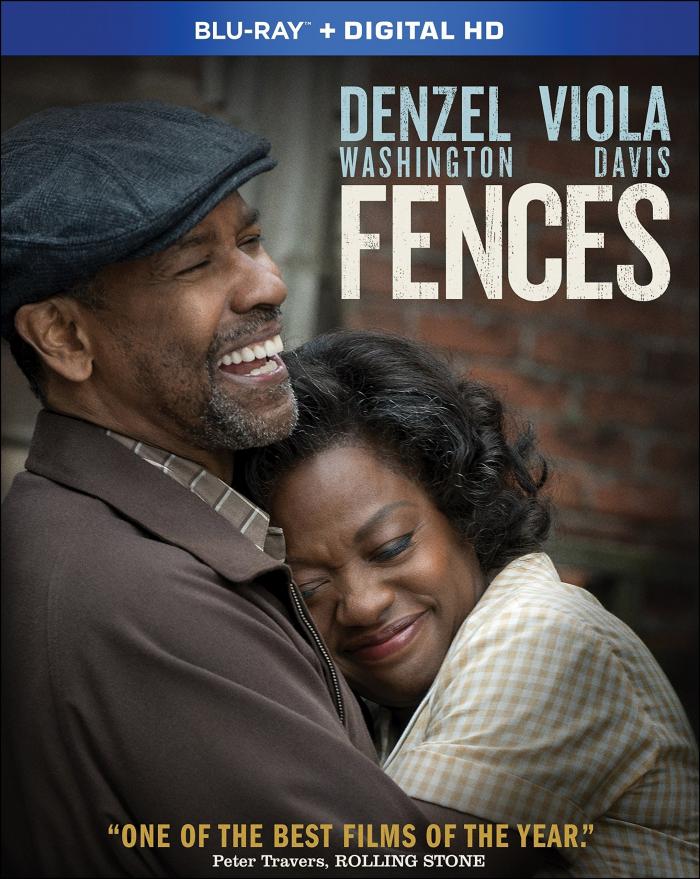FENCES: A Heart-Wrenching Story of Family and Confinement
FTC Statement: Reviewers are frequently provided by the publisher/production company with a copy of the material being reviewed.The opinions published are solely those of the respective reviewers and may not reflect the opinions of CriticalBlast.com or its management.
As an Amazon Associate, we earn from qualifying purchases. (This is a legal requirement, as apparently some sites advertise for Amazon for free. Yes, that's sarcasm.)

“Some people build fences to keep people out – and other people build fences to keep people in.”
Based on August Wilson's renowned play, FENCES is a stunning, heart-wrenching portrait of a family and a story about feeling trapped in your life.
There’s an old bit of writing advice that I’ve always liked: your character doesn’t need to be likable to hold the audience’s attention – they need to be compelling. FENCES is a prime example of this.
Troy Maxson (Denzel Washington) lives with his wife Rose (Viola Davis) and their football-hopeful teenage son Cory (Jovan Adepo) in 1950s Pittsburg. I empathized with Troy a lot in the beginning of the movie. After a rough childhood, Troy grew up to become a hardworking family man. He’s a garbage man who wants to be the truck driver instead – a job usually reserved for white men. He cares for his mentally-challenged brother Gabe (Mykelti Williamson) who suffered brain damage during World War II. He’s a tough – but devoted – father to his two sons, determined to instill his work ethic into them. And finally, he’s an extremely dedicated husband to Rose.
However, as the movie progresses, it becomes clear that Troy is a deeply troubled man. He’s a bitter, selfish alcoholic who’s still resentful that he was too old to have a thriving career as a professional baseball player. He has skewed ideas on work ethic and what it means to be a man, and constantly inflicts these problematic views on his sons. He belittles and refuses to support his adult son, Lyons (Russell Hornsby), who is a struggling musician. He emotionally and physically abuses his teenage son, Cory, put off by his son’s athletic dreams that are similar to his own failed ambitions. And finally, he betrays his devoted wife of eighteen years – and shows no remorse for doing so.
Troy is not always a likable character – or even a “good” person. There were times in this movie where I couldn’t stand Troy for what he was putting his family through – I wanted to hug Rose and whisper “leave him!” I wanted to yell at him to stop being a hypocrite, to support his sons who just want their father to love them. But still, I couldn’t bring myself to hate Troy. He was flawed but he was real – and while I couldn't always agree with his actions and views, I understood *why* he felt and acted the way he did.
In addition to the physical fence, which Rose has instructed Troy to build in their yard, there is a great metaphor about fences that stretches across all the characters. When Troy confesses his betrayal to Rose, he justifies his actions by explaining that he feels trapped and needs more laughter in his life; Rose asks him “but what about my life?” She is just as trapped as he is, making sacrifices for a husband who has a tendency to only see his own suffering. Meanwhile, Cory’s dreams of getting out and becoming a professional athlete are hampered by his father’s stubbornness; he finds himself fenced into his life too. My heart broke for Rose and Cory throughout.
While all the characters pull off stunning performances, Washington and Davis steal the show. Viola Davis’s Oscar-winning portrayal brings Rose to life in a way that felt raw and real. Similarly, Denzel Washington delivers an emotion-packed performance; I truly feel he was robbed of the Oscar for which he was nominated.
FENCES was written as a play, and there are some scenes where the story feels better suited for that medium. The beginning, for example, features several long scenes during which characters are simply sitting in a room chatting. However, the setting also serves the fence metaphor of the story; we see many of the scenes confined to the yard or house, much like the characters themselves, who are dealing with their own sense of confinement to their home and lives.
Don’t let the cover of the DVD fool you – this is not a light, happy story. FENCES is powerful, sad, and absolutely worth watching. I recommend it!


